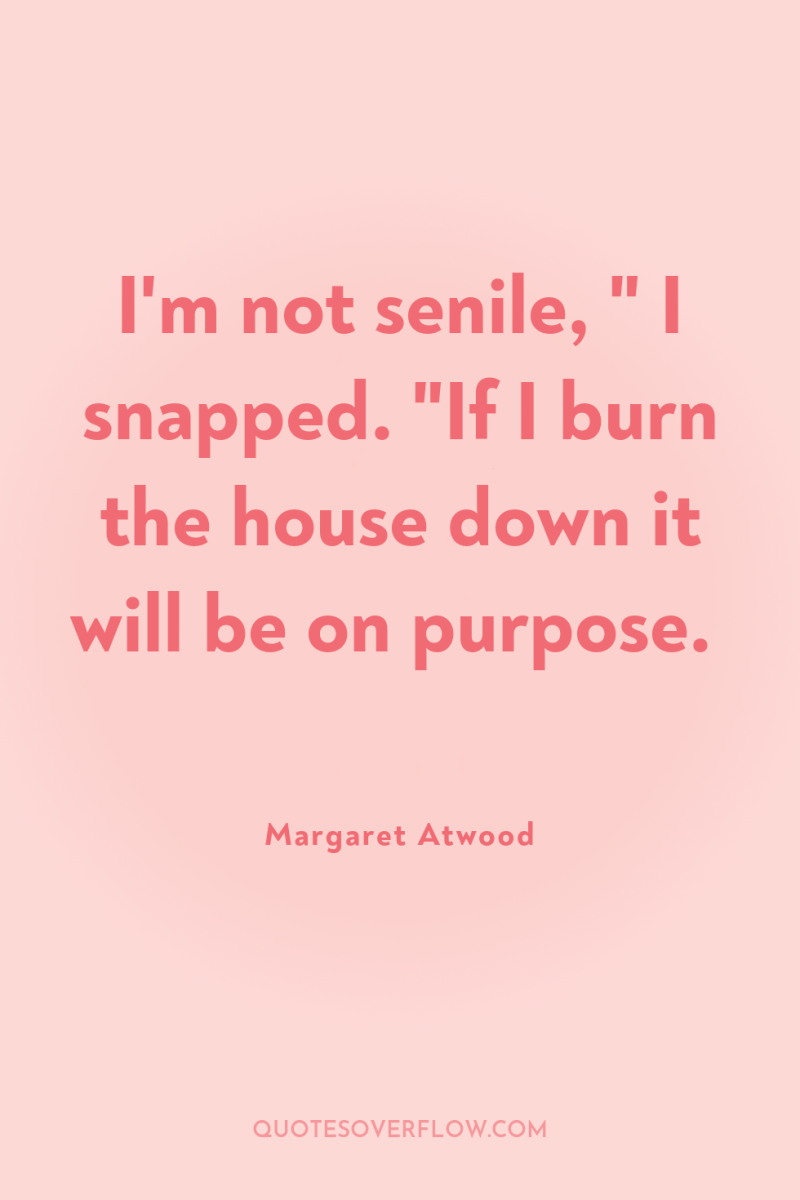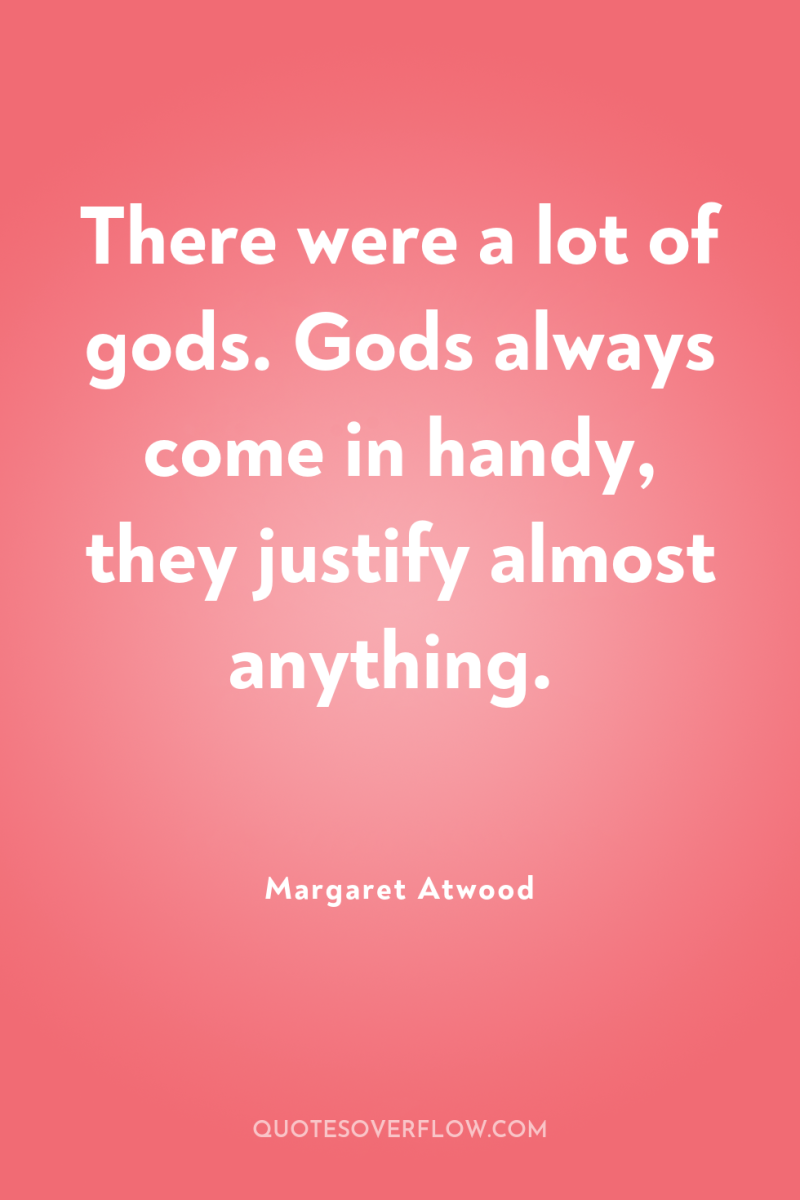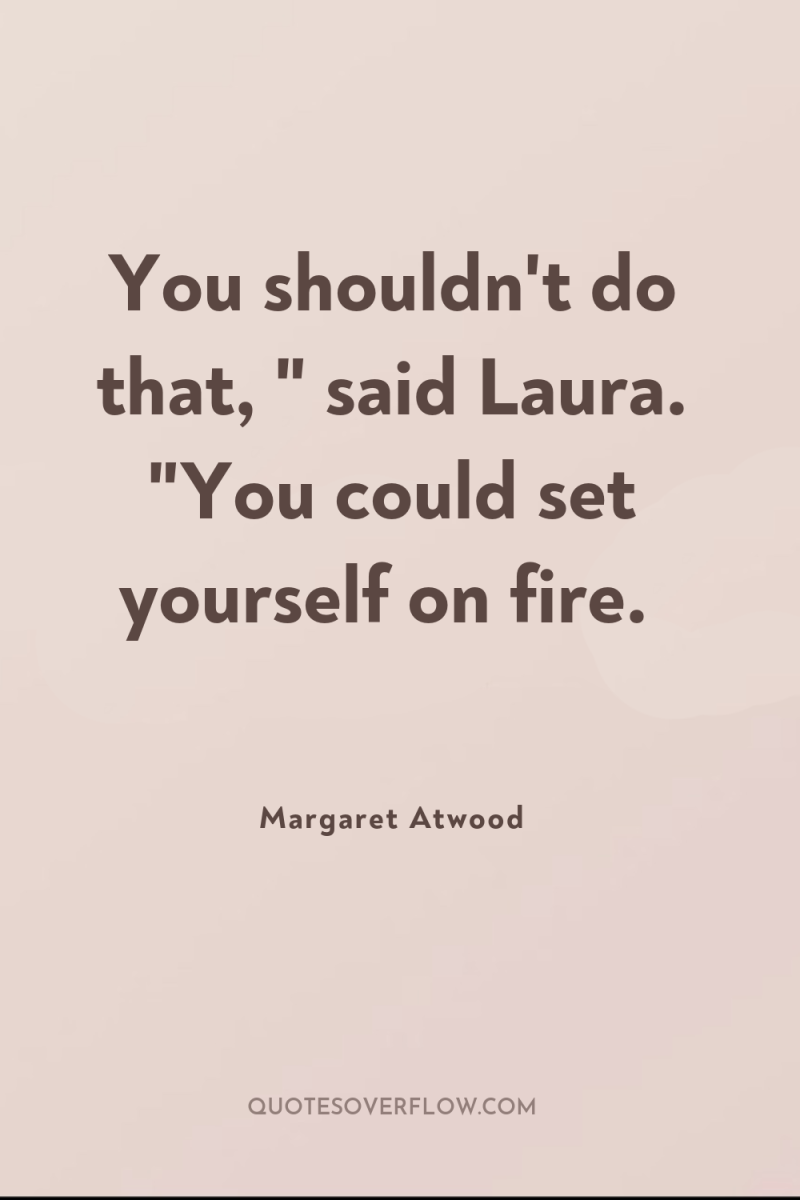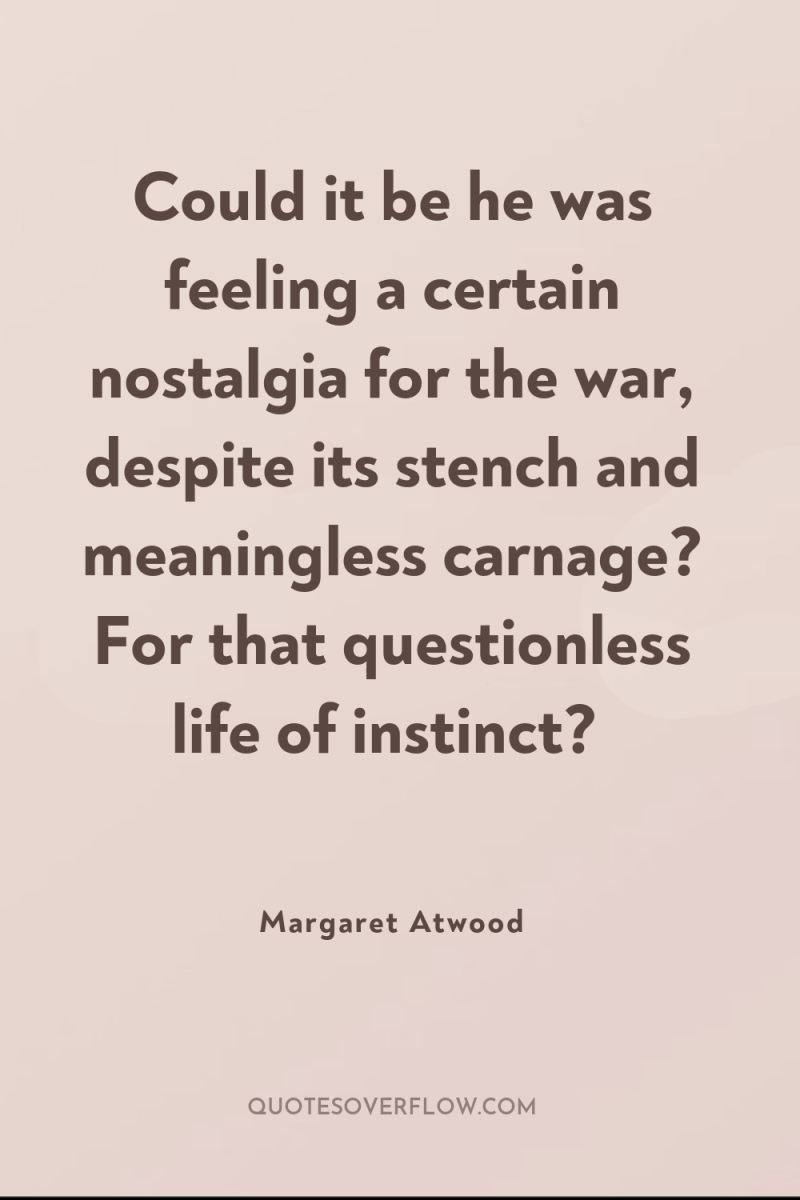1
How could I have been so ignorant? she thinks. So stupid, so unseeing, so given over to carelessness. But without such ignorance, such carelessness, how could we live? If you knew what was going to happen, if you knew everything that was going to happen next–if you knew in advance the consequences of your own actions–you'd be doomed. You'd be as ruined as God. You'd be a stone. You'd never eat or drink or laugh or get out of bed in the morning. You'd never love anyone, ever again. You'd never dare to.Margaret Atwood
2
She imagines him imagining her. This is her salvation. In spirit she walks the city, traces its labyrinths, its dingy mazes: each assignation, each rendezvous, each door and stair and bed. What he said, what she said, what they did, what they did then. Even the times they argued, fought, parted, agonized, rejoined. How they’d loved to cut themselves on each other, taste their own blood. We were ruinous together, she thinks. But how else can we live, these days, except in the midst of ruin? .Margaret Atwood
3
This is how the girl who couldn't speak and the man who couldn't see fell in love.Margaret Atwood
4
What is it the I'll want from you? Not love: that would be too much to ask. Not forgiveness, which isn't yours to bestow. Only a listener, perhaps; only someone who will see me. Don't prettify me though, whatever else you do: I have no wish to be a decorated skull. But I leave myself in your hands. What choice do I have? By the time you read this last page, that- if anywhere- is the only place I will be.Margaret Atwood

5
I'm not senile, " I snapped. "If I burn the house down it will be on purpose.Margaret Atwood
6
The only way you can write the truth is to assume that what you set down will never be read. Not by any other person, and not even by yourself at some later date. Otherwise you begin excusing yourself. You must see the writing as emerging like a long scroll of ink from the index finger of your right hand; you must see your left hand erasing it.Margaret Atwood

7
There were a lot of gods. Gods always come in handy, they justify almost anything.Margaret Atwood
8
If you knew what was going to happen, if you knew everything that was going to happen next–if you knew in advance the consequences of your own actions–you'd be doomed. You'd be ruined as God. You'd be a stone. You'd never eat or drink or laugh or get out of bed in the morning. You'd never love anyone, ever again. You'd never dare to.Margaret Atwood

9
Better not to invent her in her absence. Better to wait until she's actually here. Then he can make her up as she goes along.Margaret Atwood

10
You shouldn't do that, " said Laura. "You could set yourself on fire.Margaret Atwood

11
Time: old cold time, old sorrow, settling down in layers like silt in a pond.Margaret Atwood
12
Perhaps they were looking for passion; perhaps they delved into this book as into a mysterious parcel - a gift box at the bottom of which, hidden in layers of rustling tissue paper, lay something they'd always longed for but couldn't ever grasp.Margaret Atwood
13
Why is it we want so badly to memorialize ourselves? Even while we're still alive. We wish to assert our existence, like dogs peeing on fire hydrants. We put on display our framed photographs, our parchment diplomas, our silver-plated cups; we monogram our linen, we carve our names on trees, we scrawl them on washroom walls. It's all the same impulse. What do we hope from it? Applause, envy, respect? Or simply attention, of any kind we can get? At the very least we want a witness. We can't stand the idea of our own voices falling silent finally, like a radio running down.Margaret Atwood

14
It wasn't so easy though, ending the war. A war is a huge fire; the ashes from it drift far, and settle slowly.Margaret Atwood

15
Could it be he was feeling a certain nostalgia for the war, despite its stench and meaningless carnage? For that questionless life of instinct?Margaret Atwood

16
How did the war creep up? How did it gather itself together? What was it made from? What secrets, lies, betrayals? What loves and hatreds? What sums of money, what metals?Margaret Atwood
17
When you're young, you think everything you do is disposable. You move from now to now, crumpling time up in your hands, tossing it away. You're your own speeding car. You think you can get rid of things, and people too–leave them behind. You don't yet know about the habit they have, of coming back. Time in dreams is frozen. You can never get away from where you've been.Margaret Atwood
18
What you don’t know won’t hurt you. A dubious maxim: sometimes what you don’t know can hurt you very much.Margaret Atwood
19
She did understand, or at least she understood that she was supposed to understand. She understood, and said nothing about it, and prayed for the power to forgive, and did forgive. But he can't have found living with her forgiveness all that easy. Breakfast in a haze of forgiveness: coffee with forgiveness, porridge with forgiveness, forgiveness on the buttered toast. He would have been helpless against it, for how can you repudiate something that is never spoken? She resented, too, the nurse, or the many nurses, who had attended my father in the various hospitals. She wished him to owe his recovery to her alone–to her care, to her tireless devotion. That is the other side of selflessness: its tyranny. .Margaret Atwood
20
They were new money, without a doubt: so new it shrieked. Their clothes looked as it they'd covered themselves in glue, then rolled around in hundred-dollar bills.Margaret Atwood
21
I feel despised there, for having so little money; also for once having had so much. I never actually had it, of course. Father had it, and then Richard. But money was imputed to me, the same way crimes are imputed to those who've simply been present at them.Margaret Atwood
22
In the old days, trouble was kept in the family, which is still the best place for it, not that there's ever a best place for trouble. Why stir everything up again after that many years, with all concerned tucked, like tired children, so neatly into their graves?Margaret Atwood
23
Farewells can be shattering, but returns are surely worse. Solid flesh can never live up to the bright shadow cast by its absence. Time and distance blur the edges; then suddenly the beloved has arrived, and it's noon with its merciless light, and every spot and pore and wrinkle and bristle stands clear.Margaret Atwood
24
But thoughtless ingratitude is the armour of the young; without it, how would they ever get through life? The old wish the young well, but they wish them ill also: they would like to eat them up, and absorb their vitality, and remain immortal themselves. Without the protection of surliness and levity, all children would be crushed by the past - the past of others, loaded on their shoulders. Selfishness is their saving grace.Margaret Atwood
25
What fabrications they are, mothers. Scarecrows, wax dolls for us to stick pins into, crude diagrams. We deny them an existence of their own, we make them up to suit ourselves -- our own hungers, our own wishes, our own deficiencies.Margaret Atwood
26
All stories are about wolves. All worth repeating, that is. Anything else is sentimental drivel.Margaret Atwood
27
An old walrus-faced waiter attended to me; he had the knack of pouring the coffee and the hot milk from two jugs, held high in the air, and I found this entrancing, as if he were a child's magician. One day he said to me - he had some English - "Why are you sad?"" I'm not sad, " I said, and began to cry. Sympathy from strangers can be ruinous." You should not be sad, " he said, gazing at me with his melancholy, leathery walrus eyes. "It must be the love. But you are young and pretty, you will have time to be sad later." The French are connoisseurs of sadness, they know all the kinds. This is why they have bidets. "It is criminal, the love, " he said, patting my shoulder. "But none is worse.Margaret Atwood
28
...He was wrong about the sadness though: far better to have it when you're young. A sad pretty girl inspires the urge to console, unlike a sad old crone.Margaret Atwood
29
Sympathy from strangers can be ruinous.Margaret Atwood
30
After they had skated around the pond several times, my father asked my mother to marry him. I expect he did it awkwardly, but awkwardness in men was a sign of sincerity then.Margaret Atwood
31
Those who live alone slide into the habit of vertical eating: why bother with the niceties when there's no one to share or censure? But laxity in one area may lead to derangement in all.Margaret Atwood
32
I and the girl in the picture have ceased to be the same person. I am her outcome, the result of the life she once lived headlong; whereas she, if she can be said to exist at all, is composed only of what I remember. I have the better view - I can see her clearly, most of the time. But even if she knew enough to look, she can't see me at all.Margaret Atwood
33
I am not scoffing at goodness, which is far more difficult to explain than evil, and just as complicated. But sometimes it's hard to put up with.Margaret Atwood
34
Also she went in for culture, which gave her a certain moral authority. It wouldn't now; but people believed, then, that culture could make you better - a better person. They believed it could uplift you, or the women believed it. They hadn't yet seen Hitler at the opera house.Margaret Atwood
35
An odd thing souvenir-hunting: now becomes then even while it is still now.Margaret Atwood
36
But then it came to me that who I really am is a person who doesn't need to know who he really is, in the usual sense. What does it mean, anyway - family background and so forth? People use it mostly as an excuse for their own snobbery, or else their failings. I'm free of the temptation, that's all. I'm free of the strings. Nothing ties me down.Margaret Atwood
37
Where were we? I've forgotten. He was deciding whether to cut her throat or love her forever. Right. Yes. The usual choices.Margaret Atwood
38
I did believe, at first, that I wanted only justice. I thought my heart was pure. We do like to have such good opinions of our motives when we're about to do something harmful, to someone else. But as Mr. Erskine also pointed out, Eros with his bow and arrows is not the only blind god. Justitia is the other one. Clumsy blind gods with edged weapons: Justitia totes a sword, which, coupled with her blindfold, is a pretty good recipe for cutting yourself. .Margaret Atwood
39
That's the kind of stories I know. Sad ones. Anyway, taken to it's logical conclusion, every story is sad, because at the end everyone dies.Margaret Atwood
40
(...) everything I'd been longing to get away from, true, but not through destruction. I'd wanted to leave home, but have it stay in place, waiting for me, unchanged, so I could step back into it at will.Margaret Atwood
41
I was tired of her getting away with being so young.Margaret Atwood
42
The Three of them were beautiful, in the way all girls of that age are beautiful. It can't be helped, that sort of beauty, nor can it be conserved; it's a freshness, a plumpness of the cells, that's unearned and temporary, and that nothing can replicate. None of them was satisfied with it, however; already they were making attempts to alter themselves into some impossible, imaginary mould, plucking and pencilling away at their faces. I didn't blame them, having done the same once myself. .Margaret Atwood
43
Happiness is a garden walled with glass: there's no way in or out. In Paradise there are no stories, because there are no journeys. It's loss and regret and misery and yearning that drive the story forward, along its twisted road.Margaret Atwood
44
She writes like an angel, it says of Laura on the back of one of the editions of The Blind Assassin. An American edition, as I recall, with gold scrollwork on the cover: they set a lot of store by angels in those parts. In point of fact angels don't write much. They record sins and the names of the dammed and the saved, or they appear as disembodied hands and scribble warnings on walls. Or they deliver messages, few of which are good news: God be with you is not an unmixed blessing.Margaret Atwood
45
Thinking he knows can be a trap. An ex-professor once told him he had a diamond-hard intellect and he’d been flattered at the time. Now he considers the nature of diamonds. Although sharp and glittering and useful for cutting glass, they shine with reflected light only. They’re no use at all in the darkMargaret Atwood
46
The sun was up, the room already too warm. Light filtered in through the net curtains, hanging suspended in the air, sediment in a pond. My head felt like a sack of pulp. Still in my nightgown, damp from some fright I'd pushed aside like foliage, I pulled myself up and out of my tangled bed, then forced myself through the usual dawn rituals - the ceremonies we perform to make ourselves look sane and acceptable to other people. The hair must be smoothed down after whatever apparitions have made it stand on end during the night, the expression of staring disbelief washed from the eyes. The teeth brushed, such as they are. God knows what bones I'd been gnawing in my sleep. .Margaret Atwood
47
But unshed tears can turn rancid. So can memory. So can biting your tongue. My bad nights were beginning. I couldn't sleep.Margaret Atwood
48
More and more I feel like a letter–deposited here, collected there. But a letter addressed to no one.Margaret Atwood
49
Last night I watched the weather channel, as is my habit. Elsewhere in the world there are floods: roiling brown water, bloated cows floating by, survivors huddled on rooftops. Thousands have drowned. Global warming is held accountable: People must stop burning things up, it is said. Gasoline, oil, whole forests. But they won't stop. Greed and hunger lash them on, as usual.Margaret Atwood
50
He was deciding whether to cut her throat or love her forever.Margaret Atwood